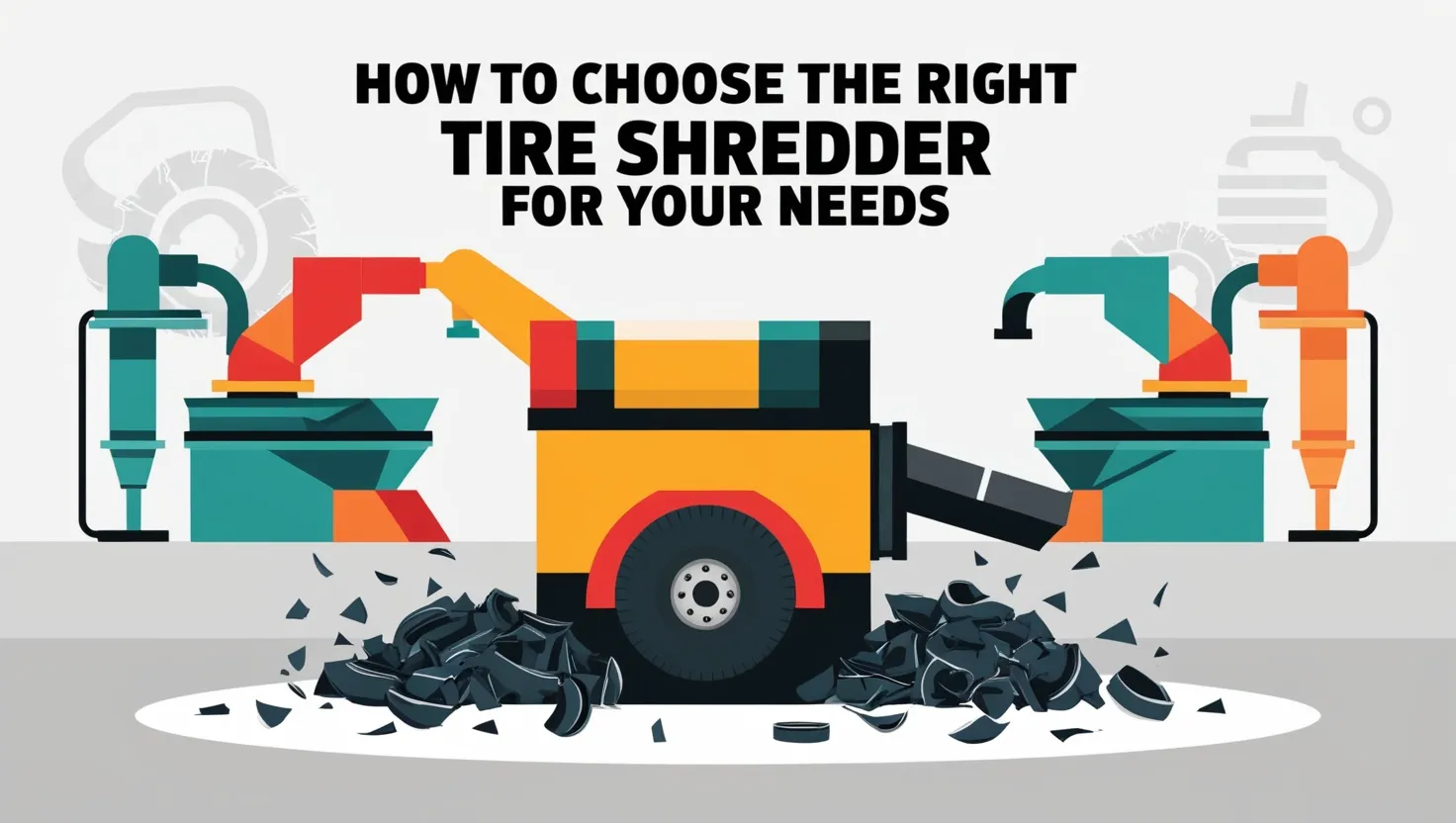When dealing with waste management, recycling, or tire disposal, having the right tire shredder is crucial. The market offers a wide range of options, making the selection process potentially overwhelming. This guide will help you understand the key factors to consider when choosing the best tire shredder for your needs, whether you’re looking to process a small amount of tires or planning to handle large-scale operations.
Contents
- 1 Understanding the Basics of Tire Shredders
- 2 Key Factors to Consider When Choosing a Tire Shredder
- 3 Conclusion
Understanding the Basics of Tire Shredders
A tire shredder is a machine designed to break down whole tires into smaller, more manageable pieces. These pieces can then be further processed, recycled, or disposed of in an environmentally responsible manner. Shredders vary in size, capacity, and the type of output they produce. Selecting the right shredder is essential to optimize your operation’s efficiency and reduce operational costs.
Key Factors to Consider When Choosing a Tire Shredder
1. Capacity and Throughput
The first thing to consider is how much material you need to process daily. Tire shredders come in various sizes and capacities, measured in tons per hour. If your operation processes a high volume of tires, you’ll need a shredder that can handle large loads efficiently without frequent breakdowns.
Questions to Ask:
- How many tires do you need to shred daily?
- What is the average size and weight of the tires?
2. Type of Tires
The type of tires you intend to shred is another crucial factor. Passenger car tires are easier to shred than truck or tractor tires, which are larger and often contain more metal. If your operation handles different tire types, consider a shredder with adjustable settings or multiple shredding stages.
Questions to Ask:
- What types of tires are you shredding? (e.g., passenger, truck, off-road)
- Do the tires contain steel or fiber belts?
3. Desired Output Size
The end product size is important for determining the right shredder. Some applications require small, uniform pieces, while others might need larger chunks. For instance, if the shredded tires will be used as fuel, smaller sizes are generally preferred.
Questions to Ask:
- What is the intended use of the shredded material?
- How small does the shredded tire need to be?
4. Maintenance and Durability
Tire shredding can be a demanding process, putting significant wear and tear on your equipment. Consider the durability of the shredder and how easy it is to maintain. Machines with high-quality blades and easy access for maintenance will save you time and money in the long run.
Questions to Ask:
- What is the expected lifespan of the shredder?
- How often does the shredder need maintenance?
5. Energy Efficiency
Energy consumption is a major factor in operational costs. Some shredders are more energy-efficient than others, which can lead to substantial savings over time. Look for machines that offer high throughput with lower energy consumption.
Questions to Ask:
- What is the shredder’s power consumption rate?
- Does the shredder have energy-saving features?
6. Safety Features
Given the heavy-duty nature of tire shredding, safety should be a top priority. Look for shredders that come with safety features such as emergency stop buttons, safety guards, and automatic shutoff systems to protect operators from accidents.
Questions to Ask:
- What safety features are included with the shredder?
- Are there additional safety certifications or ratings?
7. Cost and Return on Investment
Finally, you need to consider the cost of the shredder relative to your budget and the potential return on investment (ROI). While it might be tempting to go for the cheapest option, investing in a high-quality, efficient machine will pay off in the long run through lower operational costs and higher productivity.
Questions to Ask:
- What is your budget for a tire shredder?
- How long will it take to achieve ROI?
Conclusion
Choosing the right tire shredder involves a careful assessment of your specific needs, including the type of tires you’ll be processing, the desired output, and the machine’s durability and efficiency. By considering the factors outlined above, you can make an informed decision that will enhance your operation’s productivity and profitability.
For businesses looking to expand their tire shredding capabilities, exploring advanced options and consulting with manufacturers can provide additional insights into which machine will best meet your needs. Proper investment in the right shredder not only improves your bottom line but also contributes to more sustainable waste management practices.



